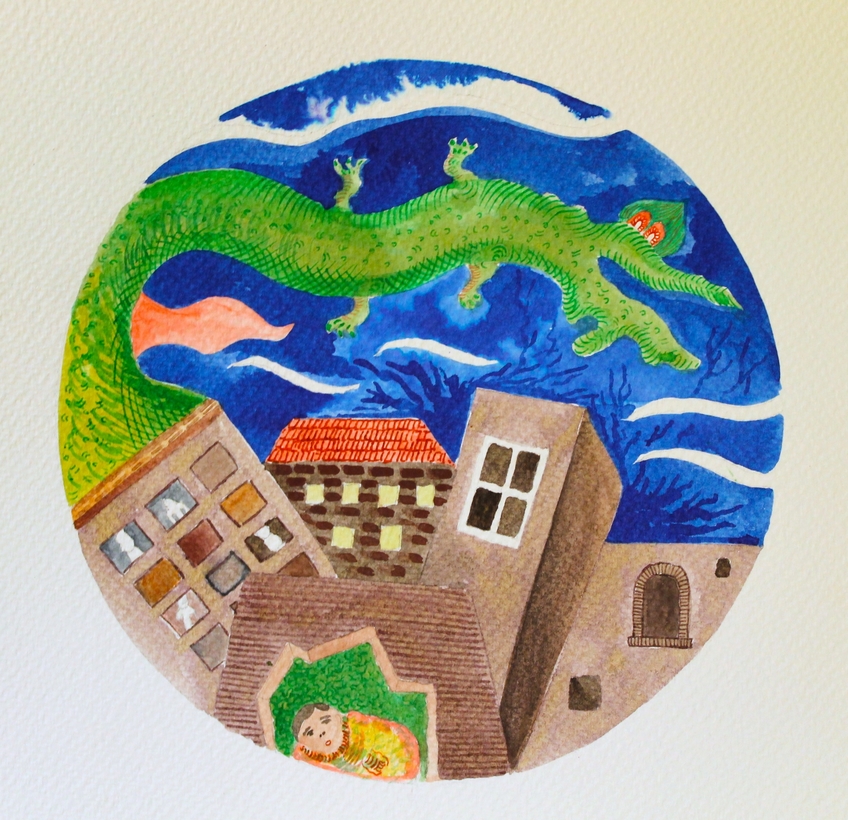
'Storybook Nightmare' Image Courtesy: Shoili Kanungo
When we heard of the lynching of Junaid, many of us were deeply saddened, and for many reasons. It is utterly tragic that a young boy should be lynched for no reason. Can such brutality be permitted in a society that calls itself civilised? Such occurrences take what is becoming a predictable pattern. A gang of Indians slaughter another Indian because he is not a Hindu, and a gathering of other Indians watch without making any attempt to prevent the murder. This is not the India that many of us have lived in for a lifetime. The lynching of Muslims and Dalits, and the increase in these incidents over the last three years, as statistics tell us, leaves one wondering what kind of a country India has become.
Lynching kills, but also creates terror; and this terror is now taking over Indian society. Terror brutalises people and leaves them with no moral commitment or sensitivity to other humans. They watch the brutality but do nothing to stop it. Is this the new ethical code of Indian society: that one should not intervene when a person is being lynched, slaughtered or raped?
Is it also terror that has seeped into the administration and the police, both wings of government that are supposed to protect the citizen, but are now unable to do so? Or is it just apathy? What has happened to governance with these continuing incidents of lawlessness? Have governments – state and centre – ceased to govern? Is the control of governance now shifting to the lynch mobs and their patrons? Is this to be the future of India?
We are continually told that Hindus have always been a non-violent and tolerant people. Is this a demonstration of non-violence and tolerance? Is lynching and murdering to be the method of defending the Hindu religion? Are devout and ethical Hindus not appalled by this? And are we, as Indians, aware of the consequences of this terror stalking our society?
Courtesy: Indian Cultural Forum